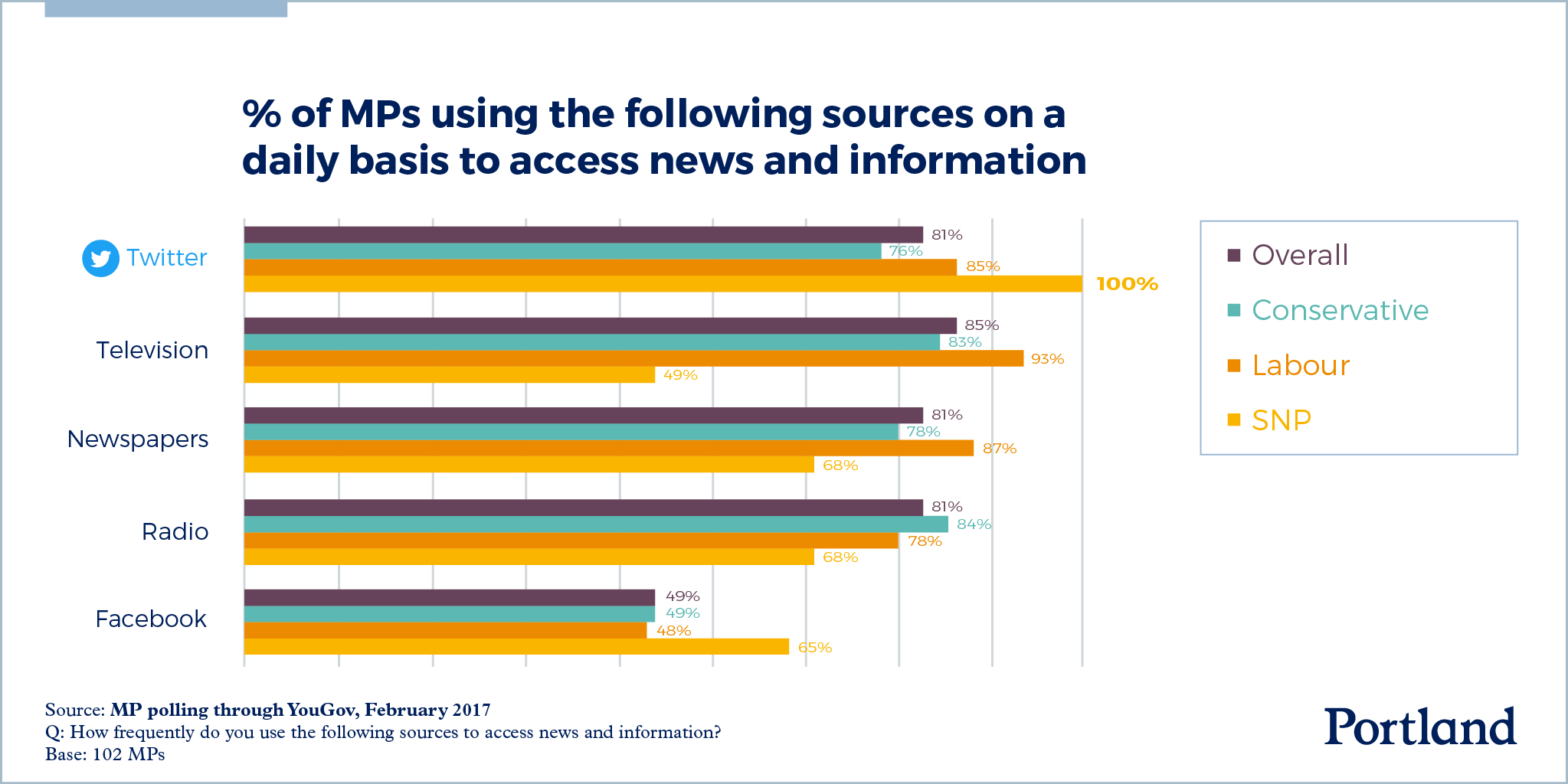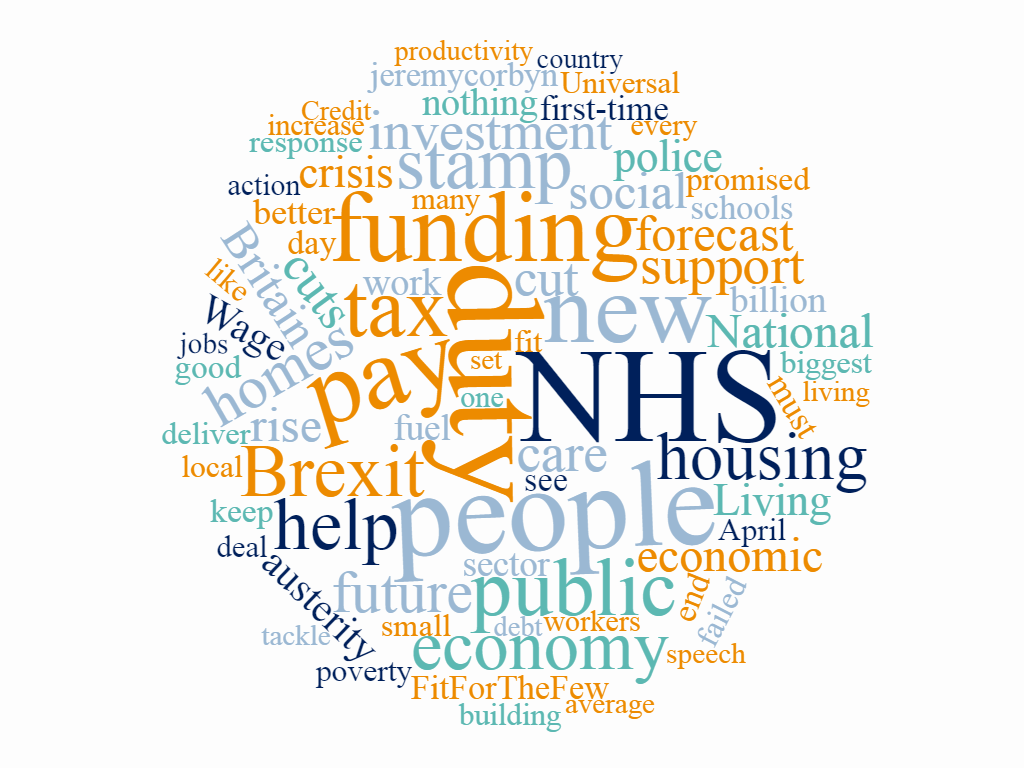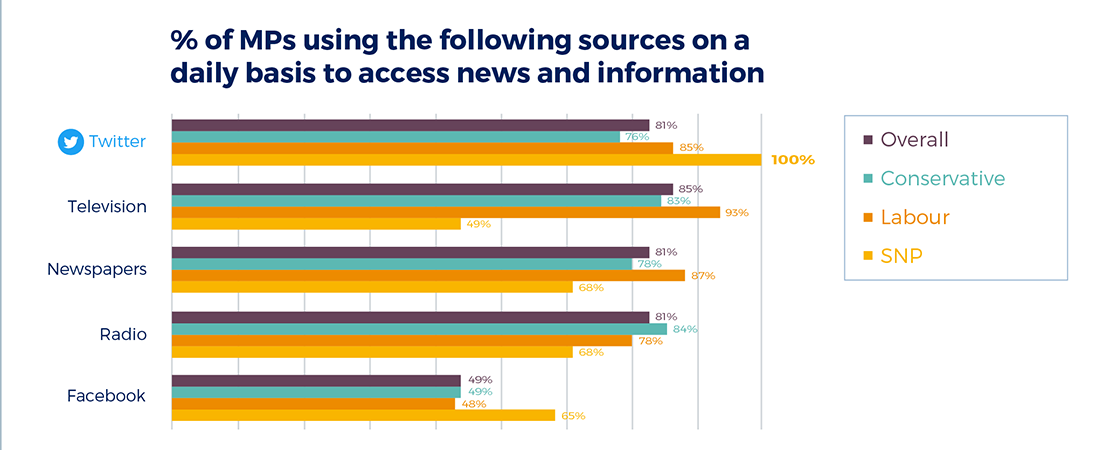Every year (and twice if you’re lucky!) Westminster, Fleet Street and the City are taken over by Budget Day.
Yesterday lunchtime thousands were franticly clicking ‘Ctrl + F’ through the Red Book, searching for what the Chancellor’s announcements and the economic outlook would mean for them and the future of their business.
Even before the Chancellor has sat down, the reaction floods in as commentators score the gags with as much vigour as the spending plans. Where once we might have had to wait for the morning papers to find out who the winners and losers are, now we know almost instantaneously thanks to social media.
Last month, Portland conducted research with YouGov which found 81% of MPs use Twitter every day to consume information. Watching the chamber during the Budget, you could see MPs scrolling through mobiles and iPads, trying to find out how the government’s lines were landing with their constituents.

The majority of MPs and their offices used Twitter yesterday to put out their thoughts and see what was being said.
- 3,530 mentions of the Budget stemmed from MPs’ accounts on Twitter yesterday
- 426 MPs joined the conversation
- 80% of MPs tweeting used the hashtags of the day
- 121 MPs shared their view ten times or more
The issues MPs were most likely to comment on included, unsurprisingly, the NHS, the stamp duty announcement and housing commitments, the economic outlook and Brexit, as well as changes to pay such as through raising the National Living Wage or National Minimum Wage.

Looking at the trend line below, we can see most MPs were reacting in real-time, while Philip Hammond was speaking. However, the flurry of interest sustains itself well into in the evening, after the first tranche of analysis was posted online and broadcast on the news channels.

Both the Labour Party and Conservatives tried to shape the debate via social during the Budget and in the hours thereafter. With the Tories releasing a social video promoting their plans to abolish stamp duty for first time buyers:
My Government will help people save for their first home by abolishing stamp duty for over 80% of first-time buyers. #Budget2017 pic.twitter.com/nKfWnSw9kp
— Theresa May (@theresa_may) November 22, 2017
And the Labour party releasing a series of infographics attacking the Tories record, particularly focussing on housing:
The Tories promised to help more people get on the housing ladder – but there are almost 200k fewer home-owners than in 2010. #Budget2017 pic.twitter.com/X68atmtQiT
— The Labour Party (@UKLabour) November 22, 2017
Understanding how your stakeholders choose to read the news and gage opinions is integral to planning successful engagement strategies.
As well as making sure their reactive statement was in today’s nationals, we also saw leading businesses use their own social media feeds to welcome Budget decisions or address the consequences.
With the right content and targeting, influencers and organisations can use social media to cut through directly to political decision-makers in the moments that matter most.

